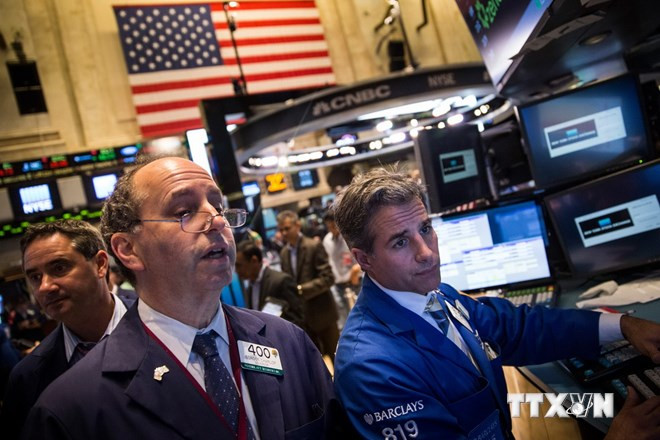Fed ends entire bailout program, keeps interest rates low
As predicted by experts, on October 29, the US central bank decided to end all bailout packages but still keep low interest rates to stimulate investment and credit.
The end of the bailout program is seen as a major turning point in US financial policy.
 |
| Investors at the stock exchange in New York. (Source: AFP/TTXVN) |
According to the announcement of the Federal Open Market Committee (FOMC), after two days of regular meetings, the Federal Reserve Bank (Fed) decided to end the entire bailout program (QE) that it had pursued since November 2008 to help the US economy overcome the Great Recession of 2007-2009.
With three bailout packages, over the past six years the Fed has injected a total of $4.4 trillion into the market to buy long-term mortgage-related bonds to keep the base interest rate low, thereby stimulating investment, credit and helping to promote economic recovery.
To end this entire program, over the past year, the Fed has gradually reduced the third bailout package (QE-3) from 85 billion USD/month to 15 billion USD this October.
The announcement also said all 12 members of the FOMC voted unanimously to continue to maintain for a certain period of time the interest rate on overnight interbank commercial loans at the 0-0.25% level pursued since December 2008.
The reason for the decision to end the entire bailout program was explained as "the Fed believes that the recovery of the US economy will continue, even though the global economy is showing signs of slowing down."
Another reason is that the US job market has been improving continuously over the past eight months, with the unemployment rate in September falling from 6.1% to 5.9%. This is the lowest unemployment rate in the US in the past six years.
The announcement said the Fed's mandate for the coming period is to keep inflation at 2% and continue to support the job market to return to normal levels with unemployment around 5%. Experts predict that the Fed will most likely continue to maintain the base interest rate near zero until mid-2015.
The US stock market was immediately affected by the latest decisions of the Fed. Major indexes including Dow Jones, Standard & Poor's 500 and Nasdaq Composite decreased by 0.18%, 0.14% and 0.33% respectively at the end of the trading session on October 29.
According to Vietnam+


